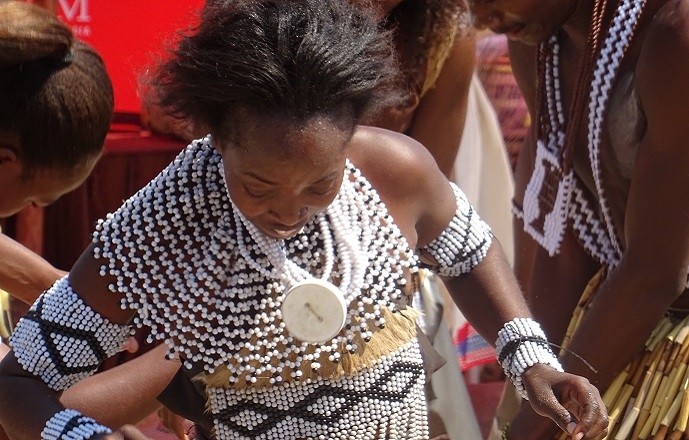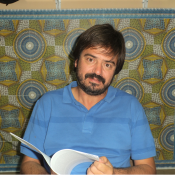DemiKhoe - Tracing invisible footsteps: towards a demic model for the spread of Khoe-Kwadi languages and pastoralism in southern Africa
This project proposes a multidisciplinary approach to study the role of demic movements and cultural diffusion in shaping the genetic, linguistic and cultural landscape of pre-colonial southern Africa. Previous hypotheses identify three population strata in this region, linked to distinct linguistic layers and subsistence patterns: (1) indigenous Stone Age foragers speaking Kx’a and Tuu languages; (2) Late Stone Age pastoralists from East Africa speaking Khoe-Kwadi languages; (3) Iron Age agro-pastoralists speaking Bantu languages from West-Central Africa.
The proposed research combines recent advances in the typing and sequencing of genetic data with quantitative linguistics and spatial modelling to offer an alternative take on the current assumption that the Khoe-Kwadi languages were introduced by a migratory wave of shepherds from eastern Africa. Contrary to the prevailing view that the genetic and cultural heritage of these immigrants survived in modern peoples, a closer inspection of the available evidence suggests that Khoe-Kwadi-speakers do not share an obvious genetic profile. Here a new interpretation of the available information is proposed by assuming that peoples and cultural traits did not spread as a single package, but interacted in complex patterns that can be uncovered and quantified in a carefully designed model combining different types of data with geographical and demographic information.
Relying on a methodological framework which focuses on the computational modelling of linguistic and human genetics data, the following questions on the conflation of foraging, pastoral and agricultural traditions in pre-colonial southern Africa will be addressed: (1) was the introduction of languages of the Khoe-Kwadi family caused by a large-scale movement of Khoe-Kwadi-speakers, or by a minor demic impact, followed by rapid cultural diffusion across
autochthonous peoples?; (2) can Khoe-Kwadi speakers be linked to an eastern Africa source population? (3) did the Khoe-Kwadi way of life impact only local foragers speaking languages of the Kx’a and Tuu families, or did it also extend to incoming Bantu speakers whose arrival in some parts of southwestern Africa might even predate Khoe-Kwadi presence in this area?;
By taking into account the answers to these questions, we will be able to assess the relative roles of human migration and cultural diffusion in the spread of Khoe-Kwadi and food production to the Kalahari Basin area of southern Africa. To achieve these goals, the project will combine the reanalysis of published results with new data on admixed Bantu- and Khoe-Kwadi speaking populations from the Okavango River Basin to be obtained in the field. The analysis of all data types will not only employ the latest technological and scientific standards, but also devise new methods for the co-analysis and integrated storage of data types from different disciplines.
Team
Principal Investigator
State
Ongoing
Funded by
Fundação para a Ciência e a Tecnologia (FCT)
Dates
2018 (Duration: 3 years)
Reference
PTDC/BIA-GEN/29273/2017

